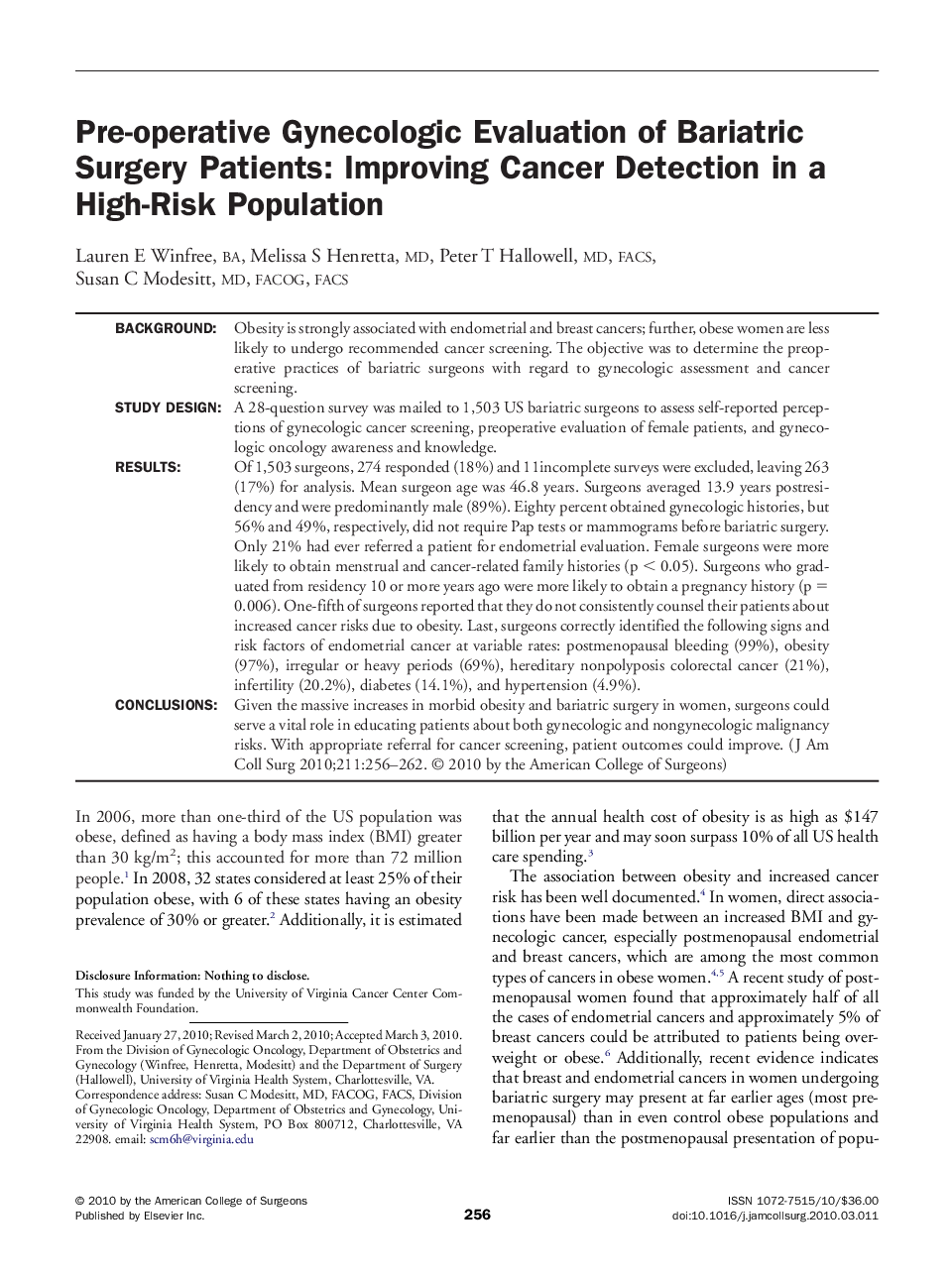| کد مقاله | کد نشریه | سال انتشار | مقاله انگلیسی | نسخه تمام متن |
|---|---|---|---|---|
| 4293156 | 1612283 | 2010 | 7 صفحه PDF | دانلود رایگان |

BackgroundObesity is strongly associated with endometrial and breast cancers; further, obese women are less likely to undergo recommended cancer screening. The objective was to determine the preoperative practices of bariatric surgeons with regard to gynecologic assessment and cancer screening.Study DesignA 28-question survey was mailed to 1,503 US bariatric surgeons to assess self-reported perceptions of gynecologic cancer screening, preoperative evaluation of female patients, and gynecologic oncology awareness and knowledge.ResultsOf 1,503 surgeons, 274 responded (18%) and 11incomplete surveys were excluded, leaving 263 (17%) for analysis. Mean surgeon age was 46.8 years. Surgeons averaged 13.9 years postresidency and were predominantly male (89%). Eighty percent obtained gynecologic histories, but 56% and 49%, respectively, did not require Pap tests or mammograms before bariatric surgery. Only 21% had ever referred a patient for endometrial evaluation. Female surgeons were more likely to obtain menstrual and cancer-related family histories (p < 0.05). Surgeons who graduated from residency 10 or more years ago were more likely to obtain a pregnancy history (p = 0.006). One-fifth of surgeons reported that they do not consistently counsel their patients about increased cancer risks due to obesity. Last, surgeons correctly identified the following signs and risk factors of endometrial cancer at variable rates: postmenopausal bleeding (99%), obesity (97%), irregular or heavy periods (69%), hereditary nonpolyposis colorectal cancer (21%), infertility (20.2%), diabetes (14.1%), and hypertension (4.9%).ConclusionsGiven the massive increases in morbid obesity and bariatric surgery in women, surgeons could serve a vital role in educating patients about both gynecologic and nongynecologic malignancy risks. With appropriate referral for cancer screening, patient outcomes could improve.
Journal: Journal of the American College of Surgeons - Volume 211, Issue 2, August 2010, Pages 256–262